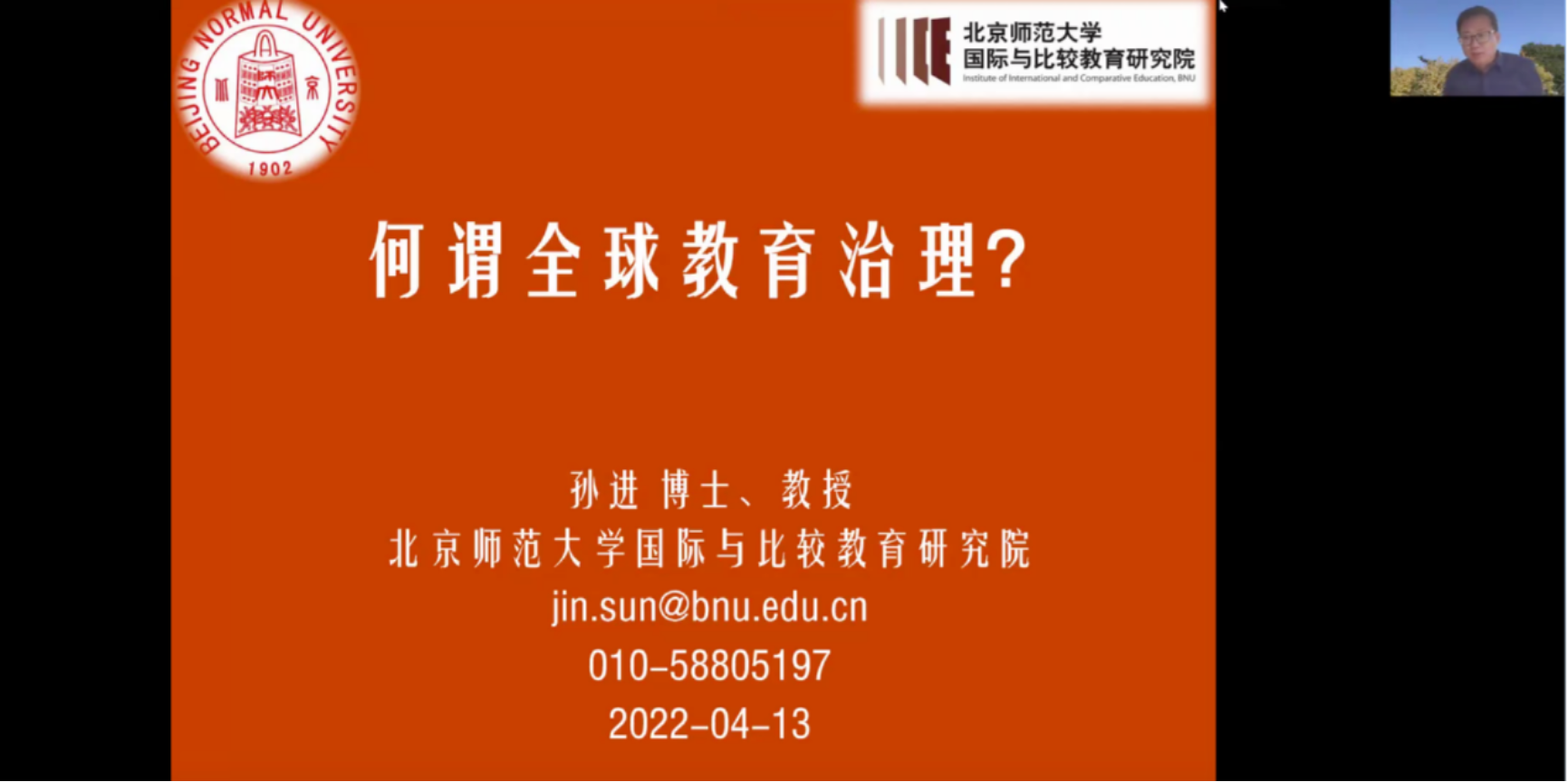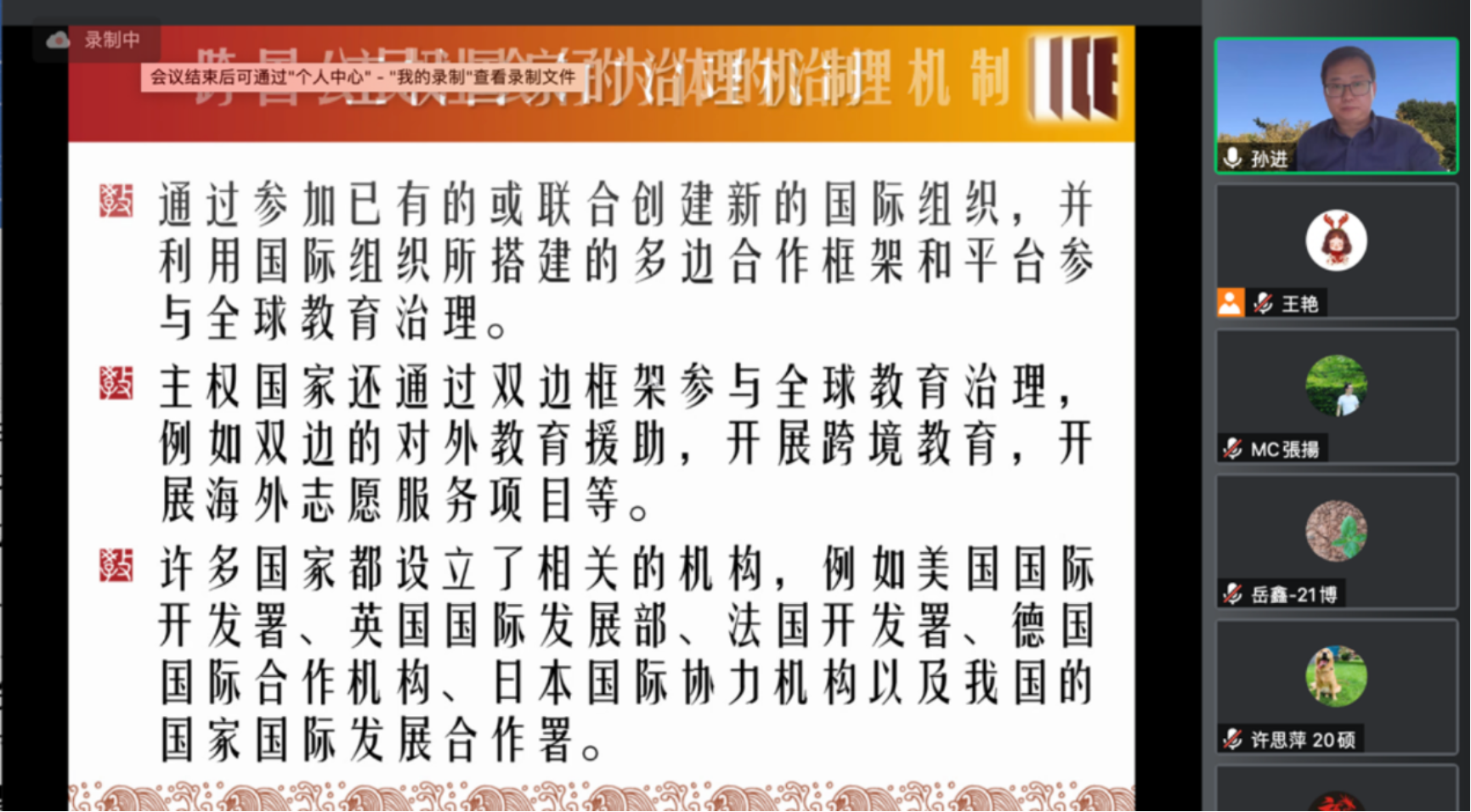On April 13, 2022, IICE Professor SUN Jin delivered a lecture online entitled “What is Global Education Governance?” for IICE’s International Education Podium. The lecture was chaired by IICE Professor LIU Baocun and attended by online faculty members and graduate students from the IICE.
Before the start of the lecture, Professor SUN said that global education governance has received a lot of attention in comparative education, and IICE also occupied an important position in this era. Professor Sun’s report revolved around the concept, subject, goal, object, mechanism and effect of global education governance. In the part of concept, he first differentiated the concept of governance from domination, then introduced the concept of global governance, and finally introduced the current definitions of the concept and proposed a broad concept of global education governance. In the part of subject, he divided the subjects involved in global education governance into supranational actors, national actors, transnational actors and subnational actors. In the part of the goal, he pointed out that the goals of global education governance could be divided into internal goals and external goals. The internal goals of different governance bodies have their own priorities, and the external goals overlap.
In the object section, he pointed out that global education governance covers issues that need to be addressed by the international community together at all levels and in all types of education, from preschool to continuing education, from general education to vocational education, and from formal education to non-formal education. Different subjects of global education governance not only overlap in governance objects and fields, but also have different choices and priorities. In the mechanism part, Professor SUN indicated that the global education mechanism includes both formal and informal mechanisms and the subjects of global education governance differ in their ways and paths. Then he focused on the participation mechanisms of non-state actors such as multinational corporations and mass media, which are currently neglected by scholars.
In the section on the effects, he discussed the positive and negative effects of global educational governance, the effects on the objects of governance, the effects on the subjects of governance, the effects on the field of practice, and the effects on the theoretical aspects. Finally, Mr. Sun points out that there are still some problems in the current research in the field of global educational governance, such as the low coverage of research topics and fields, few micro studies, weak theoretical foundation and lack of empirical methods.
At the end of the lecture, Professor SUN had further discussions with online teachers and students, and encouraged them to conduct further research in the field of global education governance.


